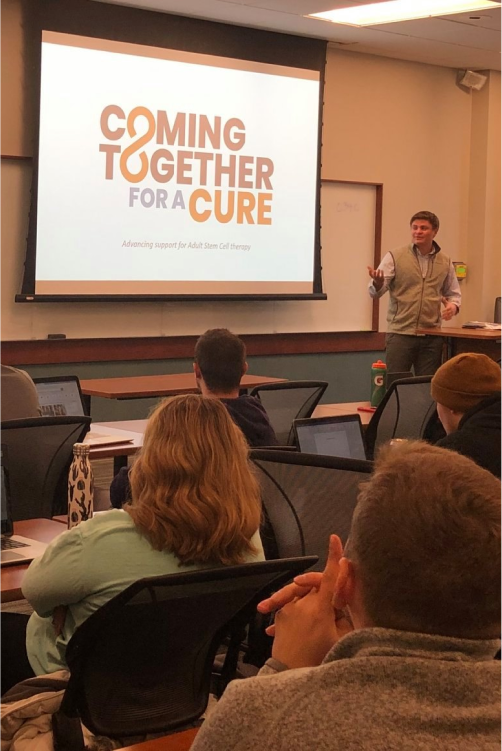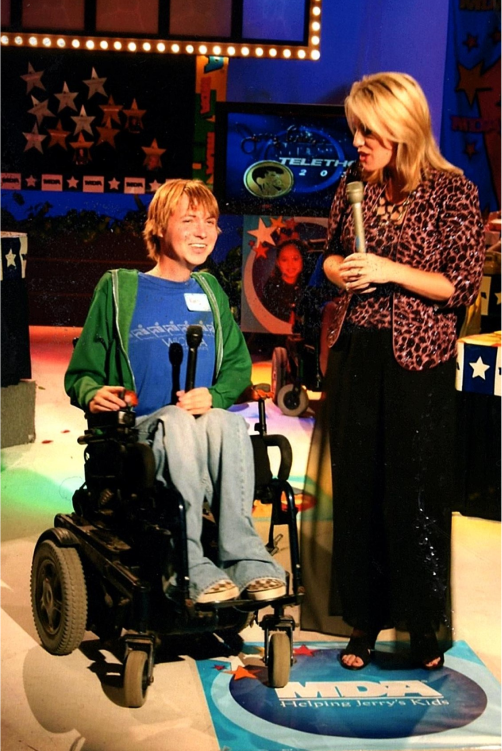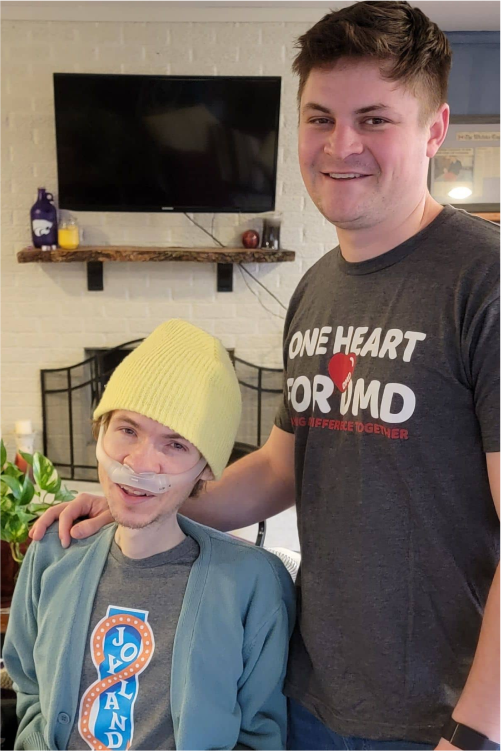
Frequently Asked
Questions
With 14 years of experience connecting families and navigating this disease, we have answered a lot of questions.
Stem Cell Therapy for Duchenne FAQs
No, different mutations should not make a difference, but the phenotype of each patient is valuable information in a trial to determine future or eventual research avenues.
For several months our body does not reject these cells as our body’s immune system is unable to recognize umbilical cord MSCs as foreign. After that the body does recognize them and will eliminate them.
A simple way to describe why individual patient’s specific genetic predisposition is not dependent on the ability for MSCs to make an impact, is that mesenchymal stem cells do not discriminate, thus, they are universally accepted by the body.
This will be addressed specifically in the inclusion/exclusion criteria of the trial(s).
This will depend on the inclusion/exclusion criteria for the particular trial. It’s common for trials to exclude people who have been subjects in prior trials.
It depends on the trial design . Could be that the alternative or placebo branch takes corticosteroids as the standard of care. But the answer to this question will depend on the organization of the trial.
This will be trial dependent.
Newly injected mesenchymal stem cells hone in on areas of inflammation and identify the cells in the body which lack the Dystrophin protein.
At this point, the new mesenchymal stem cells repair the cells negatively impacted by the disease and allow them to produce Dystrophin which allows the body to fight back against the disease for roughly 3-4 months.
Stem Cell FAQs
No patients who have received this therapy have experienced negative effects.
Adult stem cells should not be confused with embryonic stem cells. Both the Catholic and Southern Baptist churches support the use of adult stem cells as a means of medical therapy.
In May of 2017 “Charlie’s Law” was passed into law in Texas through HB-810. For the first time ever in the United States it is now legal for patients to receive medical therapy with expanded adult stem cells such as MSCs.
For allogeneic stem cell therapy, eventually the number of newly introduced active stem cells would decline. This decline begins to take place after three months or so as the cells become recognizable to the immune system and are cleared by the body. This specific time frame and type of decline does not apply to all types of stem cells.
The most common method for providing stem cell therapy is through intravenous infusions. No anesthesia is required. Protocols vary by the clinic or clinical trial in question. On average, patients receive three to four infusions total over the course of four to five days. IV infusions typically take no longer than 30 minutes.
All donated cords are the by-products of normal healthy births. Donors are required to sign a consent form, complete a detailed questionnaire and give a blood sample. The mother’s blood and cord blood undergo extensive testing for HIV, STD’s, hepatitis, etc. Each cord is carefully screened for sterility and infectious disease under the international blood bank standards.
Dr. Riordan’s team at the stem cell institute has administered these stem cells thousands of times and there has never been a single instance of rejection. To prove this point, MSC stem cells are approved to treat graft vs host disease in Canada and New Zealand.
Aside from initial pain at the injection site, patients will not experience any discomfort. In rare cases patients experience minor fever, headache, or nausea. Although these side effects usually subside within 24 hours. No long-term negative side effects have been reported.
Currently, no insurance companies cover adult stem cell therapy.
The use of pharmacological agents to treat DMD has not proproduced favorable results in clinical trials. Only corticosteroids manage to delay the progression of the disease but come with many adverse effects. It may be possible to modify genetic regions responsible for the dystrophin deficiency with gene therapy, but this is still under development. -Rising Tide
Umbilical cord-derived MSCs proliferate/differentiate more efficiently and “older” cells, such as those found in the fat and therefore, they are considered to be more “potent”.
The current regulatory environment in the United States has strict restrictions on the isolation and expansion of cells. Within the United States, pure MSC products are not able to be given to patients as no pure MSC cell product has been approved by the FDA at this time. Currently, the only stem cell products that are FDA-approved for use in the United States consist of blood-forming stem cells that are derived from umbilical cord blood. These products are approved for use in patients with disorders that affect the production of blood but they are not approved for other uses.
https://www.fda.gov/vaccines-blood-biologics/consumers-biologics/important-patient-and-consumer-information-about-regenerative-medicine-therapies
“These are a few of the most common, many other conditions and diseases are continuing to undergo clinical trials and new discoveries are being made on a regular basis.
Muscular Dystrophy
Multiple Sclerosis
Rheumatoid Arthritis
Cerebral Palsy
Autism
Heart Failure
Osteoarthritis
Spinal Cord Injury
Autoimmune Diseases



Common outcomes from therapy
Often times we notice that patients experience similar outcomes although it is important to note that any specific outcomes are not guaranteed and each patient will have a different experience, as there are a variety of contributing factors that are unique to all patients, i.e.; level of disease progression, age, weight, daily lifestyle activities, etc.
It is important to understand that not all patients experience improvements. Some observed outcomes include (but are not limited to) improved pulmonary function, stamina, increased strength throughout the lower and upper extremities, ability to stand up with greater ease, regaining the ability to go up and downstairs and walk long distances again, as well as some cognitive improvements. There are also many smaller improvements that relate to patients’ day-to-day tasks. It is vital to be reminded that these smaller improvements often times are enormous changes for someone fighting Duchenne or other chronic degenerative conditions.
Still have questions?
Let us know how we can help.
